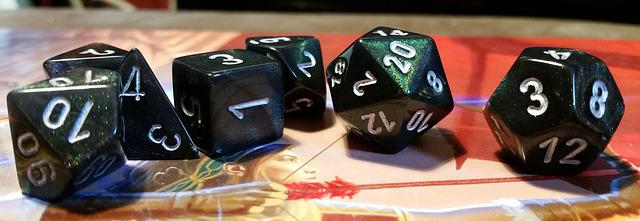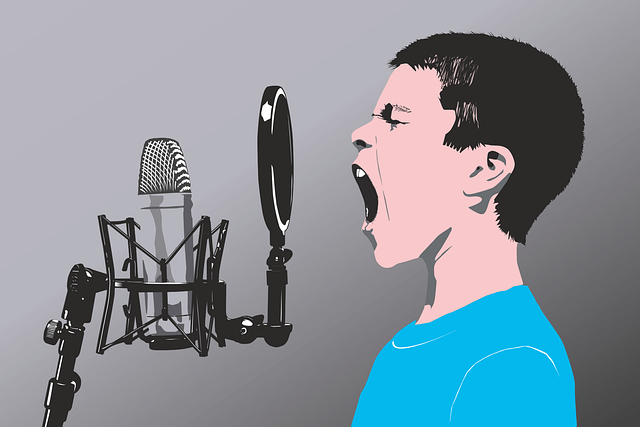You are aware that playing D&D is awesome. You’ve read the books, played around a little bit, and maybe even have a few dice and rulebooks lying around in your backpack. But you missed going to school with gamers and know that DnD roleplaying can be intimidating and kind of scary, especially if you try to join a group of strangers.
Many people are very intimidated by the idea of roleplaying. Is it too silly? Does it look like too much work?
Have no fear! DnD roleplaying (RP) can be a lot of fun. This article will walk you through the basics of what roleplaying is, how to improve your skills, and how to properly get your friends on board with roleplaying and into the exciting realm of tabletop games.

What is DnD roleplaying?
Explained in the Brittanica Dictionary, roleplaying is an activity in which people do and say things while pretending to be someone else or while pretending to be in a particular situation.
Roleplaying is used for many purposes and in many settings. In Dungeons and Dragons, several players act out characters that inhabit a fictional setting. In the theater, actors act out fictional characters in plays written by playwrights. And some authors write about characters that don’t exist in real life, as occurs in science fiction and fantasy fiction. Roleplaying is also a well-known tool used in psychology and education. It can be used to visualize and practice different ways of reacting to situations or people.
So why are many people still intimidated by the idea of roleplaying?
The psychology behind roleplaying
When we were kids, we didn’t care about roleplaying games. We’d just have fun with whatever toys we had, right? Of course. But as we get older, everything changes. We have to be more mature, try to show the side of our personalities that others require us to portray, and suddenly everything is so serious. No time for games, no time for joking around. Or so it seems.
I’m not playing a role. I’m being myself, whatever the hell that is.
Bea Arthur
Most of us don’t realize it, but we roleplay in real life every day. In social situations, we act differently than we do at work. We portray a version of ourselves to different people, in different situations of the day. You might be a friendly, warm person at work, but then you go out with friends and put on your party face. Then you meet a date for drinks and you’re the flirtatious one. The truth is that we all have different versions of ourselves that fit different situations. We are constantly playing roles to some degree.
So why is it so hard to roleplay in DnD?
For one, we put a lot of pressure on ourselves to be good role players. It’s strange when you think about it. We usually imagine successful actors who excel at the art of acting out roles in their lives and then compare ourselves to them and think, “Well, I’m not that good.” And then we don’t even try.

But as I said before, roleplaying is used for many purposes and in many settings. If we let go of the idea that roleplaying is an art form and instead focus on the fact that it’s just another version of ourselves in everyday situations, it doesn’t seem so scary anymore.
Second, if you are a novice role player, you may not be sure where to begin. So here are some ideas to consider when roleplaying.
Improve your DnD roleplaying skills
Think about your character and try to define it in detail. Firstly, try to think about your character:
1. Attitude
What is an attitude? It’s an expression of feelings and thoughts about a person, place, thing, or situation, and the way someone behaves based on those feelings and thoughts. An attitude is a way in which a person views and deals with life and how they react to certain situations. Think about what is your character’s attitude? Is she sassy? Is she a smart aleck? Does she have a big ego? Does she have low self-esteem? Is she optimistic? Is she pessimistic? A dreamer? Is your character’s attitude affecting anyone else or is it just affecting her?
2. Actions
Actions determine how your character responds in different situations. Your character may act impulsively in some circumstances and responsibly in others. How does your character react when the party gets into a sticky situation? Do they lash out at their friends? Or do they think rationally, coming up with a solution that works for everyone? The most important thing in roleplaying is to be consistent. If your character always takes risks, then he or she will always take risks. This can either be good or bad. If your character always acts impulsively, then he or she will always act impulsively. So consider your character’s actions.
3. Discourse
The words you choose, how you structure your sentences, how quickly or slowly you speak, and even the types of insults you use can tell others a lot about who your character is. They can also help you show off your character’s personality or lack thereof in the way that they interact with others. Think about how your character talks to others. What kind of words does your character use? Does he swear a lot? Or does he avoid curse words at all costs (this could say something about his upbringing)? Does he use slang terms or any kind of idioms from other languages?

Not sure where to start
If you are not sure where to start and how to choose these characteristics for your character try:
- Creating a character who describes your behavior in detail
- Playing a character who is the complete opposite of your behavior
- Playing someone based on a character from a movie, a friend, or a person you know
To assume the attitudes, actions, and discourse of another personality, especially in a make-believe situation is to understand a differing point of view or social interaction. So try to put yourself in someone else’s shoes and think about how they would react in a certain situation or what would they say.
Voice acting
Voice acting is a technique that is used in roleplaying (RP) to add another layer to the character you are portraying. It uses your voice and mannerisms to make your character more believable and realistic. By changing your vocal patterns and inflections you are speaking in character. To change your voice, try using different pitches, and accents to make your words sound like they would if they were coming from someone else. You can use the same techniques for discourse like speech rate or choosing your words and sentence structure to voice act. Try changing your voice to imitate someone else’s speech.

Voice acting is an extra layer that you can use to separate your voice from your character’s. It helps during gameplay to differentiate speaking in character or out of character. For example. When speaking out of character, I would describe my character’s actions in the third person. Speaking in character means speaking in the first person. Not everybody uses voice-acting when they play Dungeons and Dragons. It’s an optional extra layer you can choose to use or not use, depending on what makes you the most comfortable. It can be a way to make your character more vivid and real in your own mind. It makes the world feel more alive, the characters feel more real, and it’s just a cool way to play.
The essence of DnD roleplaying
As you can see, there are many ways in which roleplay can be added to a game, and even those who prefer the classic dice-and-paper approach to roleplaying can find something beneficial from the suggestions above. Using roleplay in your D&D game can provide hours of entertainment and help you take your game to new heights. These resources can enhance the gaming experience for everyone involved. Hopefully, you’ve been inspired to make roleplay an integral part of your game.
The essence of a roleplaying game is that it is a group, cooperative experience.
Gary Gygax



